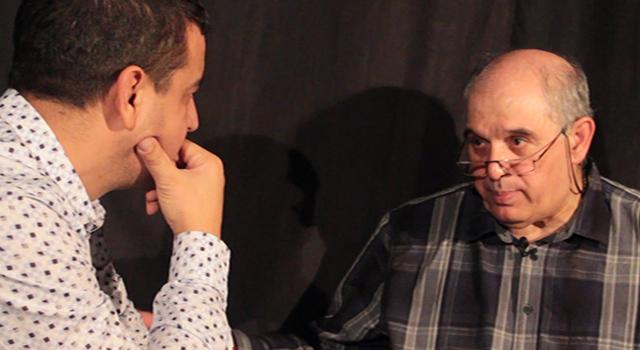Gejza Horváth: The author of "Brnox" cheated and disappointed me. Humiliation and ridicule of Romani people dominate her book.

The award-winning book “Brnox” by Kateřina Šedá continues to spark passionate discussion in the Romani community. The author won the prestigious Magnesia Litera prize in the category of journalism for the book, but criticism of it has begun to intensify, especially by Romani people.
Gejza Horváth, a respected Romani resident of Brno, the city that is the topic of the book, has posted online that the author cheated him during her preparations for the book. According to him, the book is not just dangerous primarily to Romani people, but also to all of society.
“The author of that book ‘Brnox’, Kateřina Šedá, asked me to contribute to her book, and she described her intentions to me so positively that I agreed to her requirements. However, I must say Ms Šedá has cheated and disappointed me,” Horváth posted to the Facebook profile of Jana Horváthová, director of the Museum of Romani Culture, after the director published a link there to an article she herself has authored about “Brnox” for news server Romea.cz.
“I have looked through the book, I’ve read it, and in my opinion it is not entitled to be considered a work of art, and definitely not one deserving of an award. From my perspective, neither art nor facts matter at all in the work that has received such an honor. It appears to just be a kind of tourist brochure. Also, I have the feeling that the author, through her book, wanted to support the opinions held by the majority society about Romani people,” Horváth’s post continues, adding: “I, as a Romani man who daily encounters dislike, hatred and racism from other people, can say with a clear conscience that this book is dangerous for society – but most of all, it is a threat to Romani people. Humiliation and ridicule of Romani people dominate througout this book. Ms Šedá points out that some Romani people here are deteriorating and illiterate. She forces the majority to judge Romani people as dangerous, nasty, ugly and unruly. I have come to recognize that this author knows nothing about Romani people and is just damaging them through her ‘literary work’. I also believe that the book ‘Brnox’ was not written by an artist, because an artist is somebody who hears, sees and speaks through the heart. An artist should create a society’s values, ones that should bring nations together, not divide them.”
Šedá, who claims to otherwise never contribute to Facebook discussions, has responded online to this devastating critique. “I never cheated you in any way. Publicist Aleš Palán and I interviewed you about your work, which I appreciate, and I even provided the interview to you for your authorization. I did that with most of the other people in the book who did not want to maintain anonymity. There are many very positive places in the book and people (since you are speaking about the majority society) are reacting in precisely the opposite way to what you have written here,” she posted.
Horváth, however, is unmoved and says he would not go into collaboration with Šedá in future. “I am ashamed to be in that book, even if I personally am there in a positive light. For the sake of completion I must add that many Romani people have said the same thing to you that I have. We are the people about whom you have written, and we are telling you what we don’t like about your book, what has rubbed us the wrong way. From a human and a moral perspective, it would be appropriate to respect our opinion and seriously involve yourself in the question of what to do about it, how to proceed,” he posted to Facebook.
Šedá has said she believes “Brnox” is not an incendiary book and that is not just about Romani people, but about an entire locality. “The problem is that you are looking just for the negative matters (there are many positive things there) and you are convinced that you know how all readers will perceive them. I have received, however, absolutely opposite reactions to the ones you are writing about here,” she has defended herself.
Horváthová, whose museum is located in the neighborhood described, responded to the author’s allegations about positive assessments of the book. “You keep saying you have just received positive reactions confirming in people’s minds what is positive about Romani people in the book. If only that were actually the case. I have long based my own assessments on the fact that, thanks to my own origins, I am able to see both sides of this conflict. Recently I have encountered reactions from non-Romani readers that I can summarize by giving the example of the following concise statement, which came from one such lady who is already a senior citizen: ‘I laughed so hard when I was reading that book, and it absolutely confirmed all that I have believed my entire, long life about gypsies.’ I wanted to cry,” Horváthová posted at the end of the emotional exchange of opinions online.
